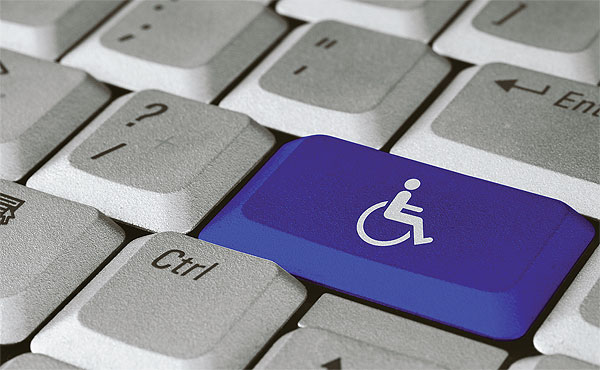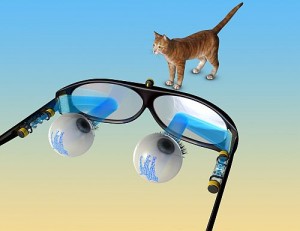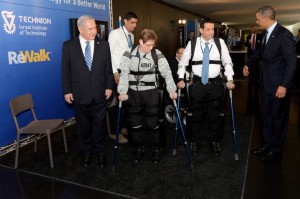And The Blind Shall See Again
Ever wonder what causes the gradual onset of blindness?
While invasive techniques do exist to combat diseases that result in blindness, wouldn’t it be nice if there was some way to deal with these diseases that didn’t involve cutting our eyes open? Well, Professor Shy Shoham and his team at the Department of Biomedical Engineering at the Technion felt so—and it seems they are on their way to developing a non-invasive solution to degenerative retinal diseases.
So how does this thing work?
Without getting too far into the particulars, the retina is to the eye as film is to the camera and degenerative retinal disease causes the eye’s “film” to be less sensitive to light, thus affecting vision. To help the retinal cells regain the necessary sensitivity to light required for vision, light-sensitive algae or bacteria are introduced into the eyes. Using holography, Shoham stimulates the retinal cells with very intense beams of light to specific cells, providing a high-resolution image. The team at the Technion hopes to develop some sort of prosthetic headset, or eyepiece that can be worn to help restore vision.
What else is happening with prosthetics in Israel?
While the project that Professor Shoham and his team are working on is most definitely an exciting one, it is not the only exciting prosthetic innovation Israelis are helping cook up. In 2009 it was reported that Israeli scientists had joined forces with scientists from Europe to develop a prosthetic hand called SmartHand. This revolutionary technology allows those with missing hands to once again perform activities requiring fine motor movement such as writing, typing and playing the piano.
Another exciting product under development is Tavor Medical Solutions’ KNEE-T-NOLTM, an artificial implant for ACL (anterior cruciate ligament) reconstructive surgery. Currently, ACL reconstruction surgery requires a ligament graft.This prosthetic ligament would render such grafts unnecessary. Ongoing clinical trials at Shaare Zedek Medical Center in Jerusalem are showing successful surgeries using the KNEE-T-NOLTM result in decreased procedure and rehabilitation times. With about 600,000 procedures performed annually, this product has the potential to make a significant impact in a well developed market.
More recently, during President Barack Obama’s visit to the country, the Israeli company Argo showcased its ReWalk technology. This life altering technology is an exoskeleton with motorized legs that power knee and hip movement enabling paraplegics to once again stand and walk independently, allowing paraplegics to be more independent than ever before. Available throughout Europe and currently deployed in rehabilitation clinics in the United States, this amazing technology has already begun radically changing the quality of life for paraplegics around the world.
In fact, biotechnology, biomedical and clinical research account for over half of the Israel’s scientific publications and more than 45% of Israeli start-ups fall within the biomedical sphere.
More than just exciting investment opportunities
There are a lot exciting projects underway in the biomedical sphere in Israel and not all of us can necessarily contribute our man power or our know-how, but there are many ways to be involved. There are a lot of interesting investment opportunities to be found in this space that are more than just interesting investing opportunities—they present unique opportunities to help advance the health and quality of life of people around the world.
I guess the question is: whose life do you want to help improve with your next investment?
Sam SchmelzerBusiness Analyst |
| Sam is a business analyst and received a Master of Science degree in Applied Mathematics from Brown University. |










